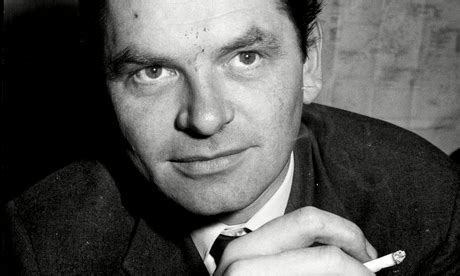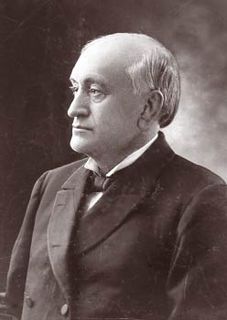A Quote by Elizabeth Goudge
...there began to come to her a first dim realization of God's humility. Rejected by the proud in His own right by what humble means He chose to succor them; through the spirit of a child, a poor gypsy or an old man, by a song perhaps, or even it might be by the fall of a leaf or the scent of a flower. For His infinite and humble patience nothing was too small to advance His purpose of salvation and eternity was not too long for its accomplishment.
Quote Topics
Related Quotes
The foundation of humility is truth. The humble man sees himself as he is. If his depreciation of himself were untrue,... it wouldnot be praiseworthy, and would be a form of hypocrisy, which is one of the evils of Pride. The man who is falsely humble, we know from our own experience, is one who is falsely proud.
Good work is no done by "humble" men. It is one of the first duties of a professor, for example, in any subject, to exaggerate a little both the importance of his subject and his own importance in it. A man who is always asking "Is what I do worth while?" and "Am I the right person to do it?" will always be ineffective himself and a discouragement to others. He must shut his eyes a little and think a little more of his subject and himself than they deserve. This is not too difficult: it is harder not to make his subject and himself ridiculous by shutting his eyes too tightly.
The plan of salvation could not be brought about without an atonement... The atoning sacrifice had to be carried out by the sinless Son of God, for fallen man could not atone for his own sins. The Atonement had to be infinite and eternal to cover all men throughout all eternity. Through His suffering and death, the Savior atoned for the sins of all men. His Atonement began in Gethsemane and continued on the cross and culminated with the Resurrection.
You have to learn humility. First of all you have to be humble people. Unless and until you have a large heart you can never humble down. You have to be an extremely humble person. Humility doesn't mean that you bow to a person who is dominating, it never means that. But it means a strength within you. The person who is weak can never be humble.
To me the sole hope of human salvation lies in teaching Man to regard himself as an experiment in the realization of God, to regard his hands as God's hand, his brain as God's brain, his purpose as God's purpose. He must regard God as a helpless Longing, which longed him into existence by its desperate need for an executive organ.
A truly humble man is sensible of his natural distance from God; of his dependence on Him; of the insufficiency of his own power and wisdom; and that it is by God's power that he is upheld and provided for, and that he needs God's wisdom to lead and guide him, and His might to enable him to do what he ought to do for Him.
Alas! What is man? Whether he be deprived of that light which is from on high, of whether he discard it, a frail and trembling creature; standing on time, that bleak and narrow isthmus between two eternities, he sees nothing but impenetrable darkness on the one hand, and doubt, distrust, and conjecture, still more perplexing, on the other. Most gladly would he take an observation, as to whence he has come, or whither he is going; alas, he has not the means: his telescope is too dim, his compass too wavering, his plummet too short.
Jesus is humble, and His servants must not be proud; but Jesus was never mean or cowardly, nor must His servants be. There was no braver man than Christ. He could stoop to save a soul, but He would stoop to nothing by which His character might be compromised or truth and righteousness insulted. To preach the Gospel boldly is to deliver it as such a message ought to be delivered. Blush to preach of a dying Saviour? Apologize for talking about the Son of God condescending to be made man that He might redeem us from all iniquity? Never!
The first miracle after the baptism of the Holy Ghost was wroughtly upon a beggar. It means that the first service of a Holy Ghost-baptized church is to the poor; that its ministry is to those who are lowest down; that its gifts are for those who need them the most. As the Spirit was upon Jesus to preach the gospel to the poor, so His Spirit is upon His servants for the same purpose.





































